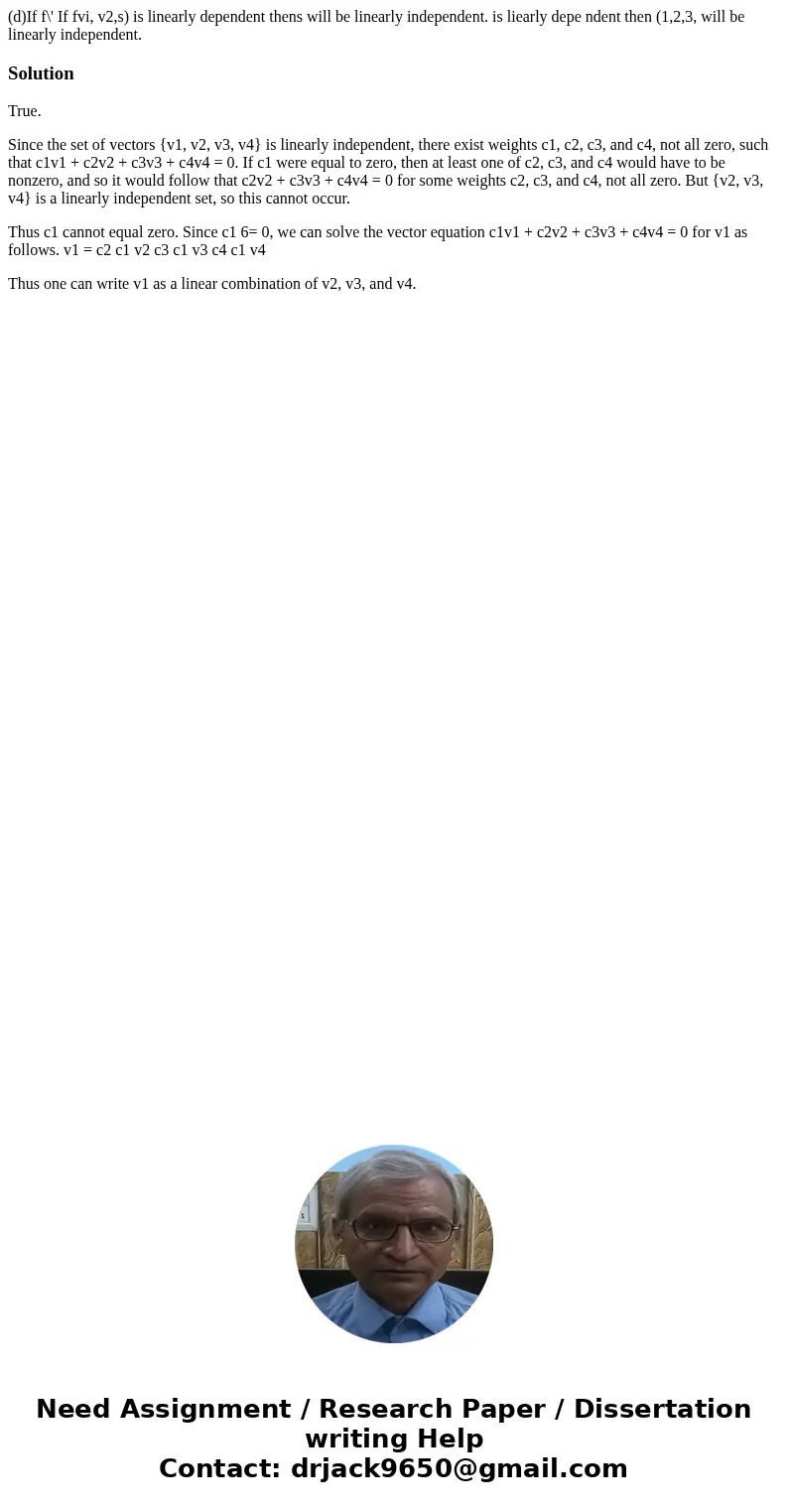dIf f If fvi v2s is linearly dependent thens will be linearl
(d)If f\' If fvi, v2,s) is linearly dependent thens will be linearly independent. is liearly depe ndent then (1,2,3, will be linearly independent. 
Solution
True.
Since the set of vectors {v1, v2, v3, v4} is linearly independent, there exist weights c1, c2, c3, and c4, not all zero, such that c1v1 + c2v2 + c3v3 + c4v4 = 0. If c1 were equal to zero, then at least one of c2, c3, and c4 would have to be nonzero, and so it would follow that c2v2 + c3v3 + c4v4 = 0 for some weights c2, c3, and c4, not all zero. But {v2, v3, v4} is a linearly independent set, so this cannot occur.
Thus c1 cannot equal zero. Since c1 6= 0, we can solve the vector equation c1v1 + c2v2 + c3v3 + c4v4 = 0 for v1 as follows. v1 = c2 c1 v2 c3 c1 v3 c4 c1 v4
Thus one can write v1 as a linear combination of v2, v3, and v4.

 Homework Sourse
Homework Sourse